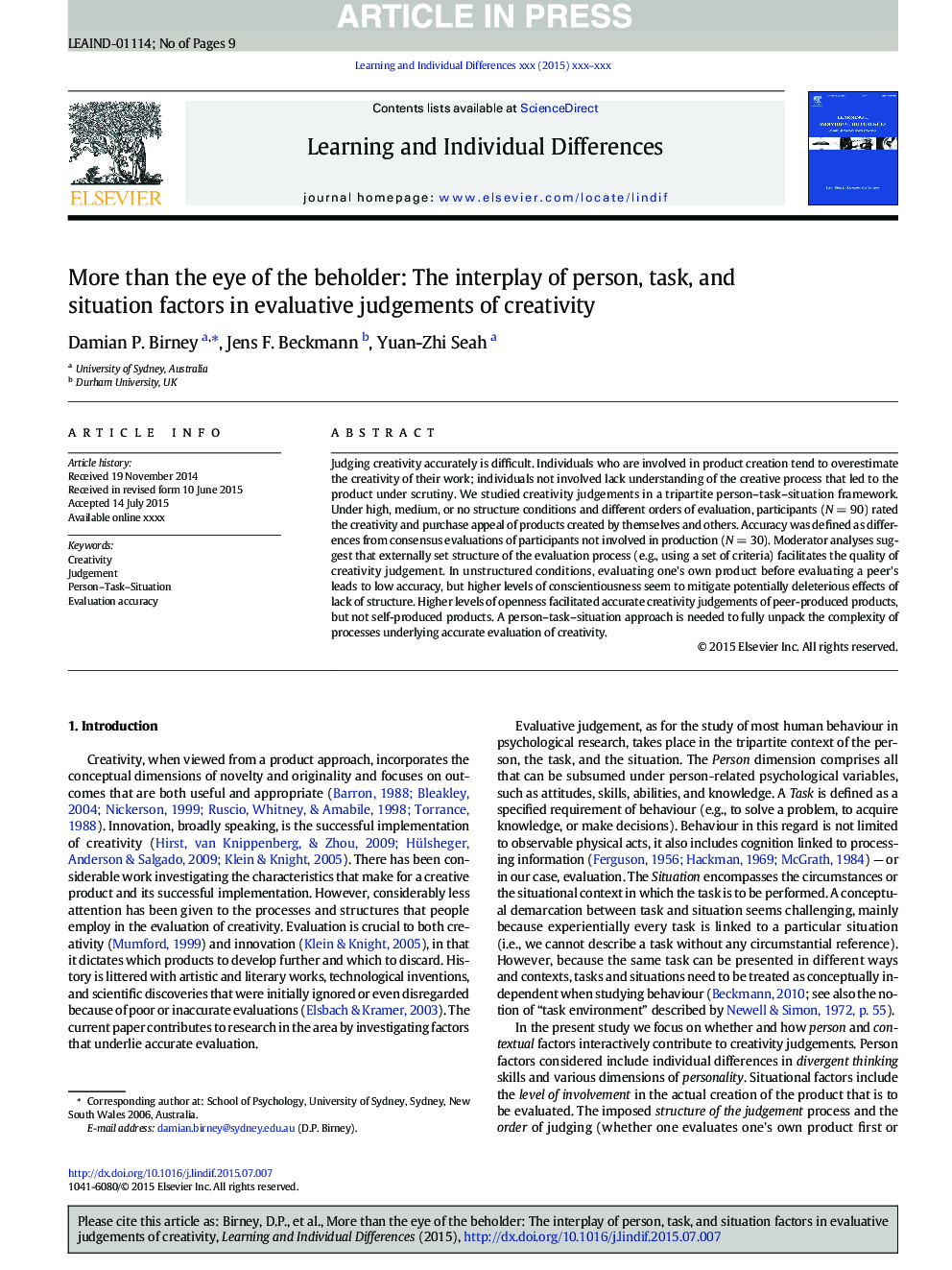| Article ID | Journal | Published Year | Pages | File Type |
|---|---|---|---|---|
| 4940139 | Learning and Individual Differences | 2016 | 9 Pages |
Abstract
Judging creativity accurately is difficult. Individuals who are involved in product creation tend to overestimate the creativity of their work; individuals not involved lack understanding of the creative process that led to the product under scrutiny. We studied creativity judgements in a tripartite person-task-situation framework. Under high, medium, or no structure conditions and different orders of evaluation, participants (NÂ =Â 90) rated the creativity and purchase appeal of products created by themselves and others. Accuracy was defined as differences from consensus evaluations of participants not involved in production (NÂ =Â 30). Moderator analyses suggest that externally set structure of the evaluation process (e.g., using a set of criteria) facilitates the quality of creativity judgement. In unstructured conditions, evaluating one's own product before evaluating a peer's leads to low accuracy, but higher levels of conscientiousness seem to mitigate potentially deleterious effects of lack of structure. Higher levels of openness facilitated accurate creativity judgements of peer-produced products, but not self-produced products. A person-task-situation approach is needed to fully unpack the complexity of processes underlying accurate evaluation of creativity.
Related Topics
Social Sciences and Humanities
Psychology
Developmental and Educational Psychology
Authors
Damian P. Birney, Jens F. Beckmann, Yuan-Zhi Seah,
